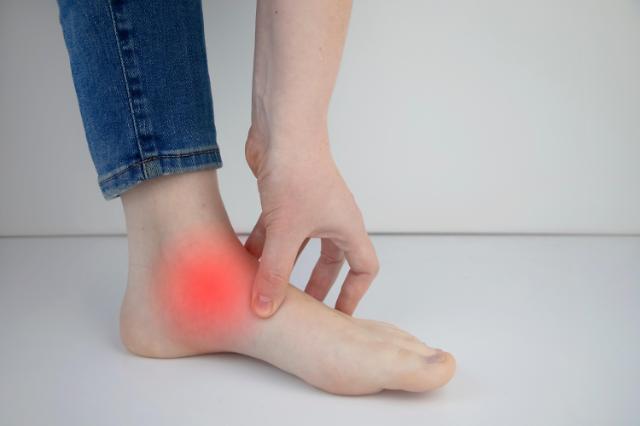–
–
–
–
–>
Indeed, according to Gallup Korea, only 12% of them plan to visit their hometown for more than one night during the Lunar New Year holidays this year. A whopping 86% of the rest said, “I have no plans to leave the house for more than one night.”
The problem is that the atmosphere of the holiday and the wrong lifestyle accumulated by Corona 19 can threaten health. Let’s look at the three major diseases and management methods to be aware of in the changed holiday mood.
As it is difficult to visit hometown this New Year, it is highly likely that the child’s vacancy will be felt particularly large from the perspective of parents. Therefore, parents need to be aware of the’empty nest syndrome’.
The empty nest syndrome refers to the feeling of loss and loneliness that parents feel when their children leave home independently due to factors such as college admission, employment, and marriage. In particular, when these symptoms are combined with the menopausal period of middle-aged women, there is a possibility that the bone density may decrease as depression worsens and emotional stress increases.
According to a study by the National Institute of Mental Health (NIMH) in the United States, women who suffer from depression are more likely to develop osteoporosis due to lower bone density of the femoral neck and lumbar spine than women without depression. In depressed women, the secretion of the protein’interleukin-6′, which destroys bones, is increased. In addition, excessive stress can lead to a decrease in bone density due to excessive secretion of corticosteroids, which can weaken bones. Osteoporosis is a disease that increases the risk of fracture due to weakened bone strength.
Cheongju Jaseng Oriental Medicine Hospital Director Choi Woo-sung said, “It is effective for middle-aged women to consume vitamin D and calcium, which usually strengthen bones, to prevent osteoporosis. It is recommended to increase bone density through weight-bearing exercises such as squats. In some cases, vigorous exercise can put a strain on the skeleton, so light exercise such as walking and jogging is recommended.”
It is also a matter to be aware of’ventilation’ caused by excessive drinking and overeating on holidays. The amount of drinking on this New Year holiday is expected to increase in the aftermath of Corona 19. This is because the number of’homesuljok’ who drink alcohol at home is on the rise.
According to the results of the Statistics Korea Household Trend Survey, the average monthly alcohol consumption and expenditure of households with two or more people nationwide in the third quarter of last year increased 13.7% year-on-year, the highest since the 2003 statistics. Therefore, during the Lunar New Year holidays, so-called homesools, who can become a habit, should be aware of the risk of gout.
Gout refers to a disease that causes inflammation and pain in the synovial membrane, cartilage, and surrounding tissues as uric acid is not discharged from the body and accumulates near the joints. Uric acid is produced by a protein called purine, which is found in large amounts in alcohol, fatty foods, and meat. Therefore, excessive drinking and overeating are lethal to gout.
According to the Health Insurance Review and Assessment Service, the number of male gout patients in 2019 was 42,6613, accounting for about 92% of all gout patients. This is a whopping 12 times more than female gout patients (35,666).
Gout mainly occurs in the joints of the big toe and also appears on the back of the foot, ankle, and knee. Symptoms of swollen joints, numbness, or fever are typical, and the pain is so severe that it hurts just by passing the wind, so the Chinese character’Wind’ was added.
To prevent gout, avoid eating alcohol, fatty foods, and meats high in purine. In addition, a diet with low-purine dairy products and vegetables is effective. Since intense exercise, which sweats a lot, increases uric acid and prevents its excretion, it is good to drink enough fluids and exercise lightly.
In addition,’chronic fatigue syndrome’ should be noted. Chronic fatigue syndrome means that symptoms such as decreased concentration, decreased memory, and muscle pain last for more than 6 months. Unlike simple fatigue, chronic fatigue syndrome does not easily go away from sleep and rest. If the symptoms persist, the body becomes weak, and it can lead to decreased work ability and even depression.
In particular,’two-jap people’ who go to work instead of their hometown during the Lunar New Year holidays are more likely to be exposed to chronic fatigue syndrome. In fact, it was found that 4 out of 10 office workers plan to work part-time during the Lunar New Year holiday this year. According to a survey conducted by a job portal for 1212 employees, including office workers, job seekers, and university students, 39.8% of office workers answered that they plan to work part-time during the Lunar New Year holidays. As such, two-jap people who work tirelessly on Lunar New Year holidays need to prevent chronic fatigue syndrome due to accumulated fatigue in advance.
Hospital Director Choi Woo-sung said, “In order to reduce fatigue, we must strive to develop basic physical strength through constant light aerobic exercise such as walking and cycling, and to sleep at least 6 hours a day. It is a holiday to wish for. It is a New Year holiday that has been transformed into corona, but let’s take time to take a look at your health and plan your health care.”
–
©’Five-language global economic newspaper’ Ajou Economy. Prohibition of unauthorized reproduction and redistribution
.


